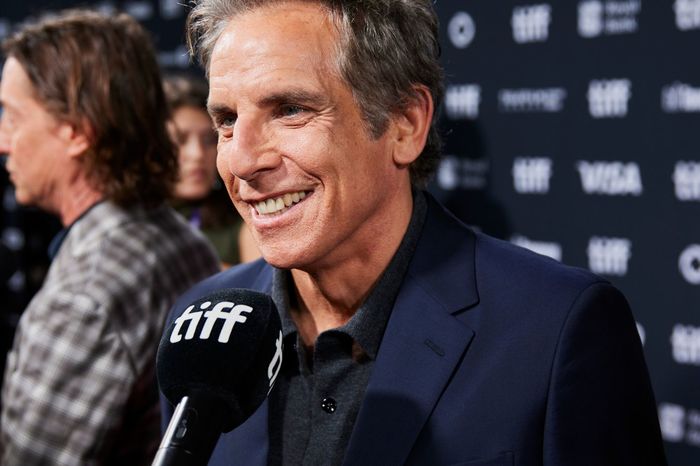Could the fan edit replace the traditional film trailer?
Harrison Base asks whether film marketing should change with the age of social media

In the dynamic landscape of film marketing, few promotional tools have stood the test of time like the film trailer. From the days of the omniscient narrator booming the opening line “In a world…” to today’s remixing of generic pop songs played over tightly edited images, trailers have remained a fundamental principle of the film industry, designed to attract spectators by showcasing (and from time to time frustratingly summarising) an entire film in two to three minutes. Once simply a marketing tool, in today’s culture of consumerism, the trailer has become an event itself, with reaction videos, commentaries, articles, and theories flooding social media in the first few hours of its debut. Of course, this has led to the emergence of the baffling teaser trailer, a fifteen to thirty second advertisement to prepare us for the full trailer’s imminent release. But despite the evolution of film marketing and how it is consumed, I have to say that I am tired of the monotonous modern film trailer; its overuse of random pop song remixes and, especially, its cringey one line joke after the title reveal. As a result, I now find myself uninterested in most trailer releases, doing what any serious cinephile would consider forbidden: watching them vertically on social media. All of this has left me convinced that the film trailer is due a revitalisation, and that we might be on the verge of one already.
“In today’s culture of consumerism, the trailer has become an event itself”
The rise of video sharing social media platforms, such as TikTok, Instagram Reels, and YouTube Shorts, with their algorithm driven virality and grassroots creativity, has allowed for a surprising new contender to emerge: the fan edit.
A re-imagination of existing footage with a rapid rhythm dictated by trending music, the fan edit itself is not a new construct. In fact, it can be traced back to 1975 when enthusiastic fan Kandy Fong created a slideshow of Star Trek (1966-69) stills inspired by The Beatles’ 1967 music video for ‘Strawberry Fields Forever’. Throughout the 1980s and 1990s producing fan edits, also known as “vidding”, became a popular time-consuming hobby amongst die-hard fans as they circulated their homemade creations on VHS tapes. Today, with easy access to digital copies of films, editing software, and online sharing platforms, fan edits are easier to create and share than ever before.
This has led me to wonder whether they could soon eclipse the traditional film trailer as the prominent form of film marketing. Whilst trailers often require paid promotion and strategic placement to find their audience, a well-crafted fan edit can naturally reach millions overnight. For example, TikTok’s ‘For You Page’ ensures that videos are targeted to those most likely to engage with them. With this being the case, it may be of interest for film studios to firstly begin reposting fan edits before adopting their aesthetics in their own marketing.
“A well-crafted fan edit can naturally reach millions overnight”
There are many reasons why the fan edit has risen from a niche hobby appreciated at comic conventions to garnering millions of online views and likes overnight. Firstly, they have a certain allure that traditional trailers lack. The participatory nature of social media makes these edits feel more authentic. Fans do not create these trailers as corporate mandates but rather out of enthusiasm or anticipation for a film. In an era where multi-million-pound companies attempt to engage with Gen Z’s language, trends, and humour to appear less corporate on social media, studios replacing the traditional trailer’s aesthetics with that of the fan edit would be in accordance with the recent shift in social media marketing. Additionally, today’s studios are increasingly eager to engage with fandoms, as exemplified by Marvel Studios responding to long-standing fan casting suggestions from online forums, such as casting John Krasinski as Mister Fantastic and Henry Cavill as the Wolverine. Studios engaging with fan edits would only foster the relationship between themselves and existing fandoms.
As digital platforms continue to reshape media consumption, the fan edit will undoubtedly further blur the line between fandom and marketing. If anything, studios should embrace the free marketing fan edits have provided them with and adopt their aesthetics as their own marketing tool. In an era where companies attempt to appear less corporate and trailers have become monotonous, the fan edit has emerged as the natural replacement. The revolutionary trailer for 2010’s The Social Network refused a traditional film score, instead featuring Radiohead’s song “Creep”, and for the following decade and a half, trailers have endlessly remixed every pop song available. In a similar manner, all it would take is one brave studio to begin reposting or adopting the aesthetics of the contemporary fan edit for a new era of film marketing to proceed.
Want to share your thoughts on this article? Send us a letter to letters@varsity.co.uk or by using this form
 News / Cambridge student numbers fall amid nationwide decline14 April 2025
News / Cambridge student numbers fall amid nationwide decline14 April 2025 News / First candidate to announce chancellorship bid pledges to tackle bullying 12 April 2025
News / First candidate to announce chancellorship bid pledges to tackle bullying 12 April 2025 Lifestyle / First year, take two: returning after intermission14 April 2025
Lifestyle / First year, take two: returning after intermission14 April 2025 News / Rowing row continues as Oxford and Cambridge scrap women’s trial race9 April 2025
News / Rowing row continues as Oxford and Cambridge scrap women’s trial race9 April 2025 News / PETA urges Cambridge dictionary to change ‘derogatory’ rat definition11 April 2025
News / PETA urges Cambridge dictionary to change ‘derogatory’ rat definition11 April 2025




